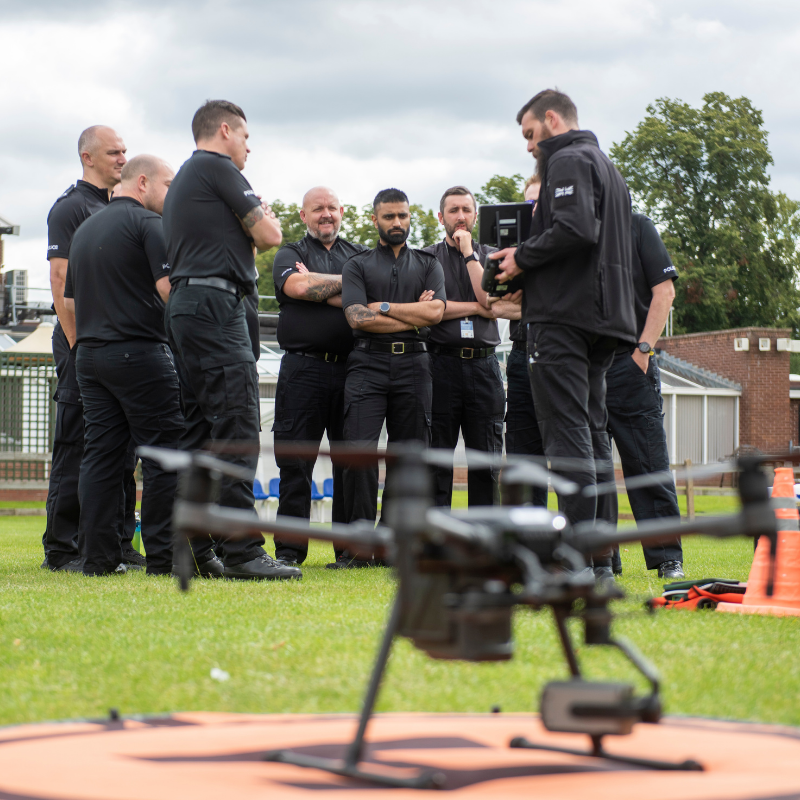
News
The heliguy™ Drone Assistive Programme
The heliguy™ Drone Assistive Programme empowers in-house commercial drone programmes and bridges capability gaps to ensure pilots have the confidence and competency to conduct complex, industry-specific missions. ... Read More

heliguy™’s Drone Assistive Programme is a fully-managed, multifaceted drone training and support package to empower in-house commercial drone programmes;
Hybrid training model - beyond the standard CAA syllabus - bridges capability gaps and features industry-specific classroom learning and on-site hands-on mentorship on real-world assets to increase pilot competency for live and complex operations;
The Programme helps enterprises develop efficient management and safety systems to comply with operational and occupational governance;
Lifetime support to develop and scale in-house commercial drone programmes, including Continuing Professional Development and complex OSC consultancy;
The Drone Assistive Programme is supporting clients such as Phillips 66, PD Ports, AB Ports and UK emergency services.
The heliguy™ Drone Assistive Programme (DAP) helps enterprise UAS divisions maximise their in-house capabilities and realise the full potential of the technology.
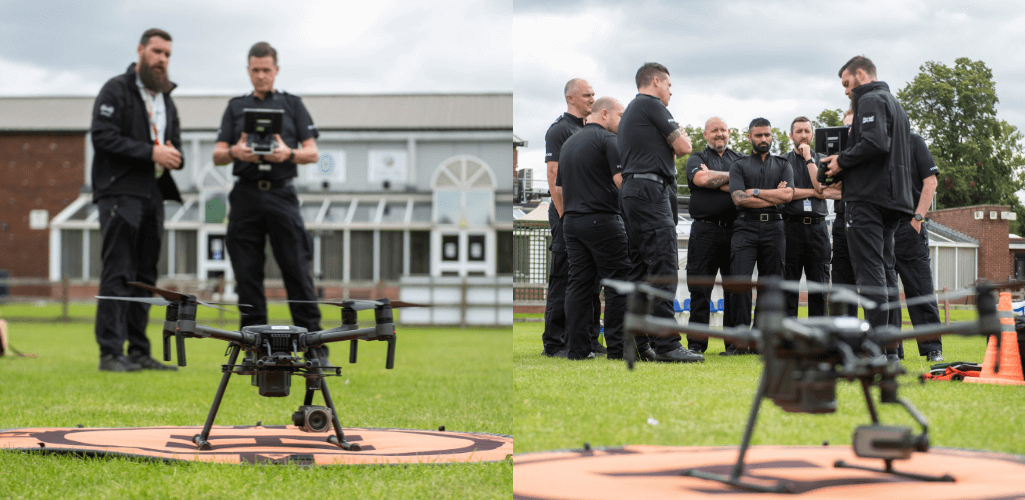
Particularly suited to oil and gas, critical asset industrial inspection and public safety sectors, the DAP is a multifaceted support package which offers a springboard for drone programmes to start and scale their internal operations.
A key aspect of the Drone Assistive Programme is bridging capability gaps, by building mission-ready pilots who are competent and confident to conduct complex, industry-specific real-world operations - such as oil and gas refinery drone aerial inspection.
Major enterprise clients who are being supported by the DAP include Phillips 66, PD Ports, AB Ports, and the UK emergency services.
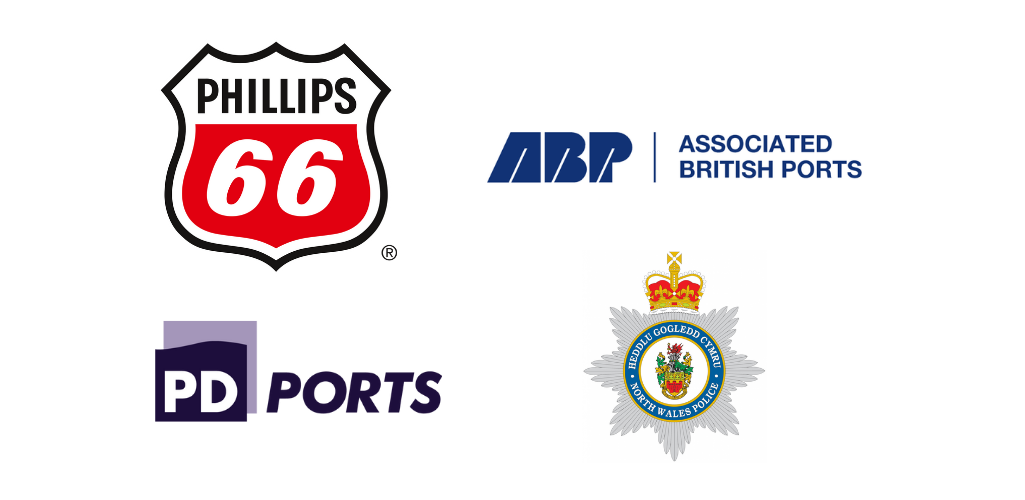
The DAP offers:
Supervised Real-world Training: Tailored, supervised and assisted onsite operational training on real-world assets to provide pilots with hands-on experience of conducting complex drone missions;
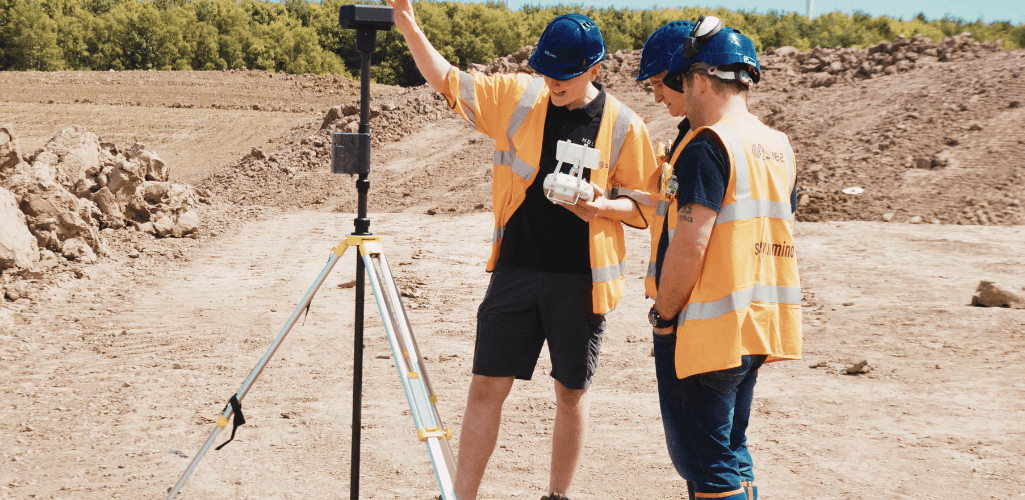
Industry Application Learning: Task-focused and application-specific classroom learning, covering modules such as use of optical and thermal sensors, modelling/mapping/surveying principles, industrial inspection, data capture/analysis, and emergency services/crisis management;
Operational Compliance: The DAP assists organisations in developing and maintaining effective management, operating procedures and safety systems within complex environments to meet operational, regulatory and industrial compliance;
Implement Strategy: The DAP helps to deepen understanding about drone deployment to assist effective operational strategy. The onsite training is delivered to multiple team members to standardise learning and knowledge transfer;
OSC Consultancy: Access our in-house Complex OSC (Operational Safety Case) consultancy service, for operations beyond Standard CAA permissions;
Lifetime Support: Helping UAS departments maintain and scale through managing the adoption of new technology and workflows, and providing Continuing Professional Development.
Realise The Potential Of The Technology: Used properly and effectively, drone technology can drive efficiencies and lead to substantial cost savings. The DAP facilitates accelerated learning to enable organisations to maximise these gains.
The DAP builds on the heliguy™ closed course training format - delivered to the likes of Network Rail. The hybrid training model of the Drone Assistive Programme is administered by our expert instructors in conjunction with industry-specific leaders.
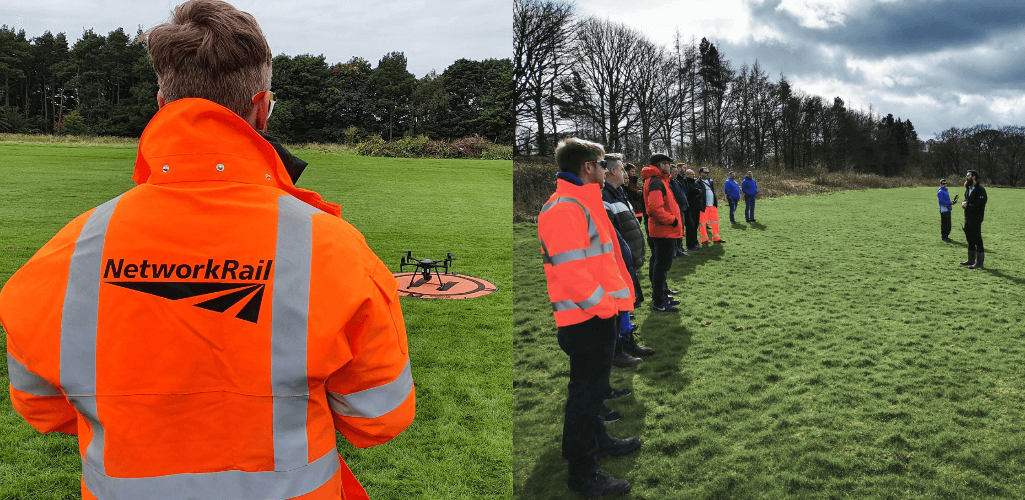
Addressing Drone Industry Issues
The Drone Assistive Programme addresses several hurdles that can hinder emerging enterprise drone programmes across varying industries.
It is also designed to fill the capability gap between between current available training - such as the GVC - and real world operational capability. After all, there is a big difference between completing training in a classroom environment and being thrust into a complex or unique operating environment.
Below are some industry-specific examples which highlight the benefits of the Drone Assistive Programme.
Example One:
Sector:
Oil and Gas / Industrial Inspection
Problem:
Highly-complex assets, such as flare stacks or chimneys, need to be inspected, and aerial drone inspection is a great way to conduct this operation.
The oil and gas major has a new drone programme: Their pilots have undergone the standard qualification training to operate legally, but initially lack the skills and experience to conduct complex on-site operations.
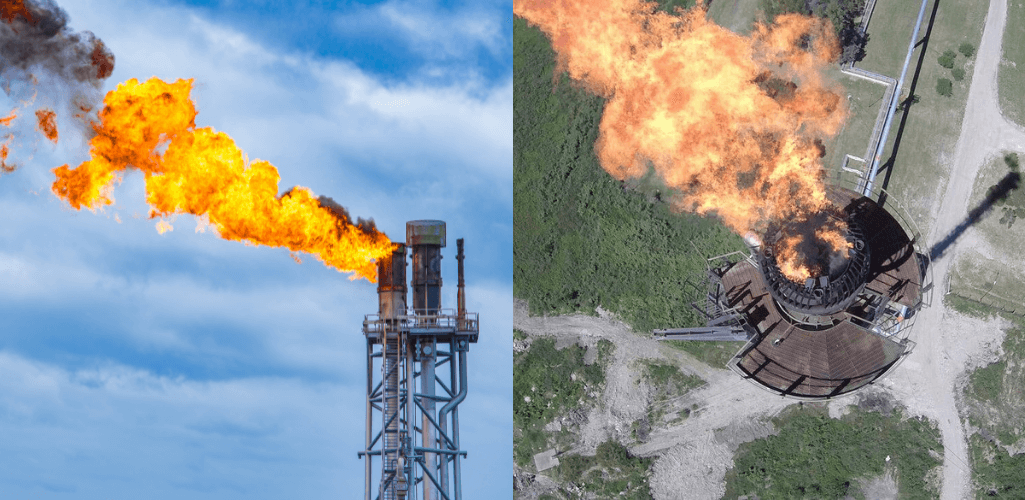
This scenario can leave organisations having to outsource the work to a more seasoned services provider - all while increasing the costs of the job, negotiating a lengthy procurement process, and leaving the in-house drone team underutilised and uninvolved, slowing the path to progression.
Solution:
The Drone Assistive Programme is designed to bridge this capability gap by building pilot competency in unique operating environments to ensure live operations can be performed safely and effectively by the in-house drone team, and in accordance with onsite policies, procedures and health and safety standards.
How do we achieve that? By delivering on-site, hands-on mentorship to enable pilots to hone their skills on complex assets in a controlled and supervised environment.
This managed approach is designed to build mission-ready drone pilots and is particularly useful for aerial drone inspections on oil and gas refineries or other critical infrastructure.
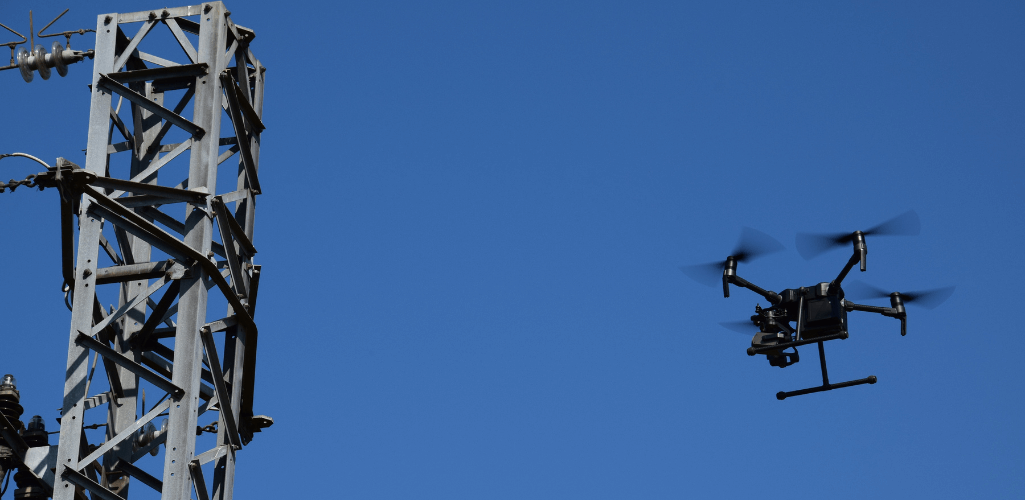
Example Two:
Sector:
Public Safety
Problem:
Police drone programmes utilise drone cameras for a variety of jobs, from using a thermal sensor in a search and rescue mission to a surveying payload to map a crime scene or following a road-traffic accident.
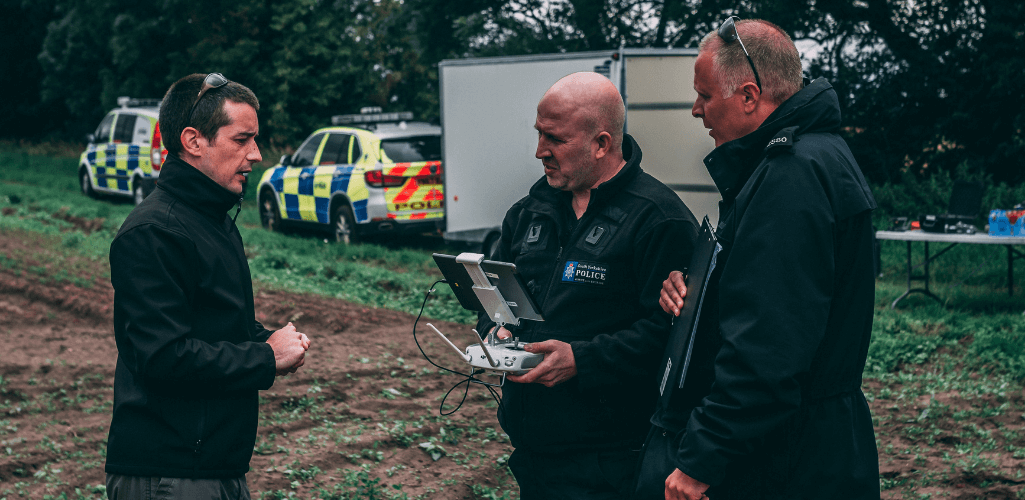
But an initial lack of experience using these sensors can lead to poor data capture, which can result in misinformed decision-making.
After all, misinterpreting a thermal data set could result in a casualty going unnoticed during a missing person search - which could have dire consequences.
There's also the issue of operational procedures. How does a new drone team respond to a high-pressure, time-critical mission?
Solution:
The Drone Assistive Programme provides hands-on and classroom-based learning to help pilots master specific payloads and drone data capture techniques to drive optimal results.
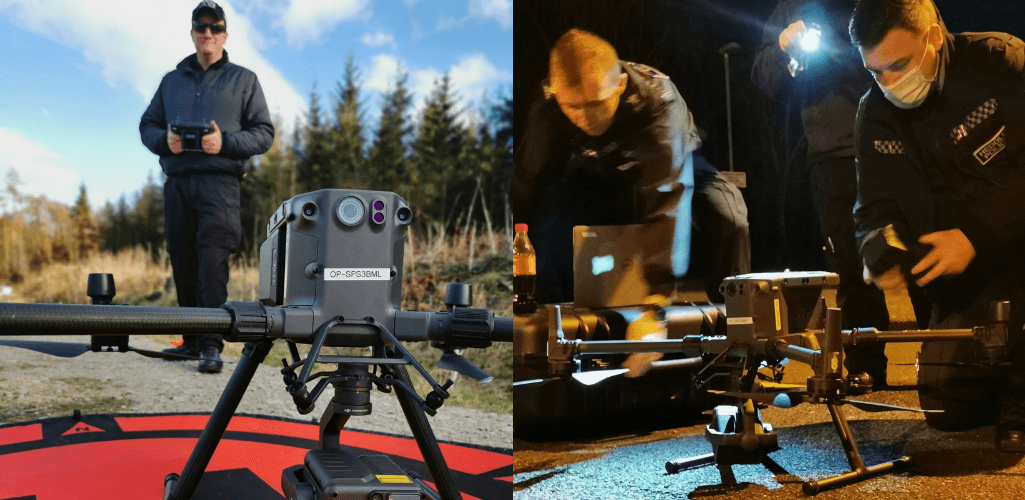
For instance, we'll teach pilots the finer details of using a sensor, such as the best thermal palettte to use during specific missions, how emissivity impacts your results, and how drone mapping data should be processed.
The DAP will also take emergency services personnel through the best practises of deployment and operational procedures to help the drone team come up with an effective mission strategy.
Drone Assistive Programme: Mission-ready Pilots
The Drone Assistive Programme is designed to create application-specific, mission-ready pilots, with the added advantage of lifetime support from the heliguy™ ecosystem of services.
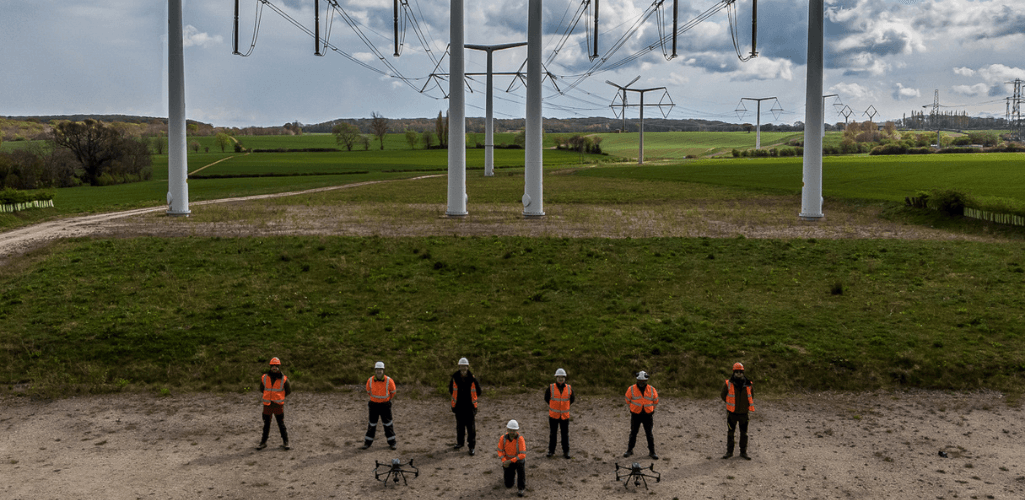
heliguy™’s Head of Training, Ben Shirley, said: “The Drone Assistive Programme is a structured and progressive training programme.
"It is designed to empower internal drone programmes and provide accountable managers with the support they need to build and maintain an effective management system and a safe system of works, incorporating health, safety and welfare, maintenance procedures, and regulatory compliance.
“For instance, there is a stark difference between being competent to use a sensor, (be it optical or thermal) and having the comprehensive knowledge to utilise the equipment in a vast range of circumstances. This is what the Drone Assistive Programme looks to address.
"Providing pilots with the skills they need to operate effectively will enable drone teams to realise the true potential of the technology, saving time and money in the process."
Contact us by phone or email to discuss the Drone Assistive Programme and industry-specific training. The Drone Assistive Programme has been developed for UK-based enterprises. There is no set price for the course, as it varies as per the requirements of each organisation. Please speak to our team for more information.
